Pautas de autorización de Synagis® (Palivizumab) 2021-2022
El virus sincitial respiratorio (VRS) puede causar una variedad de enfermedades respiratorias en bebés y niños pequeños. Por lo general, causa una enfermedad similar a un resfriado, pero también puede causar infecciones de las vías respiratorias inferiores, como bronquitis y neumonía.
Synagis® (Palivizumab) is a monoclonal antibody recommended by the American Academy of Pediatrics (AAP) to be administered to high-risk infants and young children likely to benefit from immunoprophylaxis for RSV, based on gestational age and certain underlying conditions. Palivizumab 15mg/kg is administered intramuscularly once per month for a maximum of five doses in the peak RSV months. Palivizumab is not effective for the treatment of RSV disease.
AAP Interim Guidance for Use of Palivizumab Prophylaxis to Prevent Hospitalization From Severe Respiratory Syncytial Virus Infection During the Current Atypical Interseasonal RSV Spread.
RSV activity in the United States remained very low through the traditional 2020-2021 fall-winter season but began to increase in the spring of 2021. This interseasonal increase in activity is a marked deviation from the typical RSV epidemiology and is believed to be the result of the relaxation of nonpharmacologic interventions that were previously implemented to prevent the spread of SARS-CoV-2. Consequently, RSV activity is on the rise in certain regions of the United States, with corresponding increases in emergency department visits and hospitalizations of infants and children.
Given the current atypical interseasonal change in RSV epidemiology, which may represent a delayed onset of the 2020-2021 season, the AAP strongly supports consideration for use of palivizumab in patients who would be candidates per current eligibility recommendations. This recommendation applies to regions experiencing high rates of RSV circulation, consistent with a typical fall-winter season. The Centers for Disease Control and Prevention (CDC) monitors RSV activity in the United States in collaboration with state and county health departments and commercial and clinical laboratories. The need for palivizumab administration to eligible infants during this atypical interseason should be supported where activity approaches fall-winter season and should be reassessed at least monthly.
Los criterios de utilización de la Alianza enumerados en la política 403-1120 de Synagis siguen las recomendaciones actuales de la AAP. La Alianza cubrirá Synagis para los miembros que cumplan con las Condiciones de uso descritas en la política de Synagis de la Alianza.
Para los proveedores que deseen administrar Synagis en su consultorio, se debe presentar el formulario de Declaración de necesidad médica junto con la solicitud de autorización previa.
Estas pautas siguen las recomendaciones de la Academia Estadounidense de Pediatría (AAP).
| DIAGNÓSTICO | |
Edad de 0 a 12 meses al inicio de la temporada de RSV
|
Edad 12 – <24 meses al inicio de la temporada de RSV
|
| DOSIFICACIÓN | |
Synagis 15mg/kg IM every month in peak RSV months: Dose based on current weight ________________ |
|
Autorización de la Alianza
Submit Alliance prior authorization forms by fax to (831) 430-5851. A single form is required for the series. Please indicate infant weight on the form. For providers administering Synagis in their office, also submit a completed “Statement of Medical Necessity” form found on the Alliance website, Pharmacy Page: https://thealliance.health/for-providers/manage-care/pharmacy-services.
Información de facturación y pedidos de Alliance Synagis
For providers that administer Synagis in their office, the Alliance specialty pharmacy US Bioservices must be used. CCAH staff will notify US Bioservices when Synagis has been authorized.
US Bioservices Contact Information: Phone (888) 518-7246 and Fax (888) 418-7246
Thank you for caring for young, at risk infants. If you have any questions about the Synagis recommendations, please call Yasuno Sato, Pharm D., Clinical Pharmacy Manager at (831) 430-5952.


